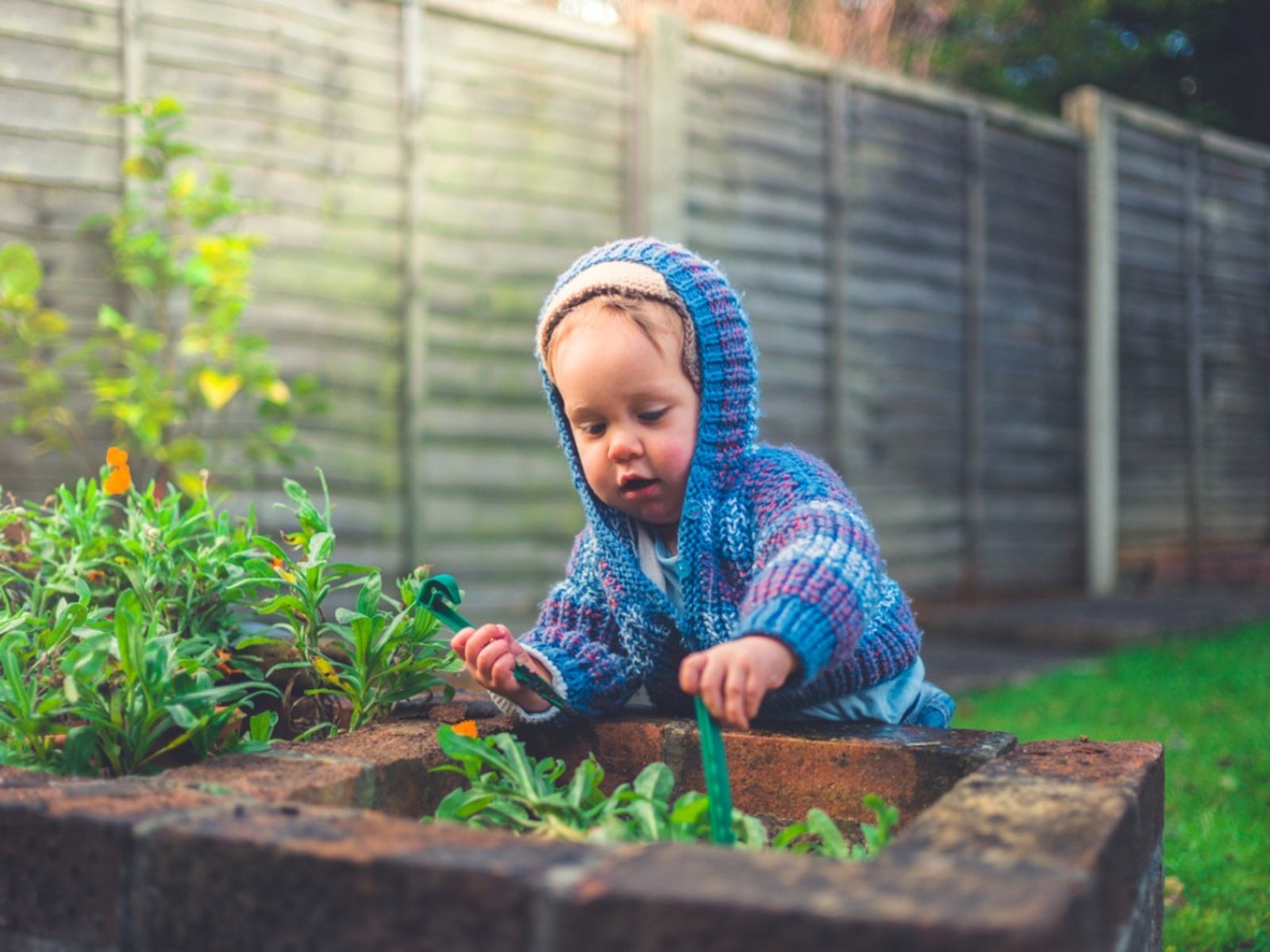Small Raised Bed Design - How Small Can A Raised Bed Be
If you have a small garden space, you can still raise plenty of plants. You just need a plan. Read on to learn about tiny raised beds.


If you have a small garden space, you can still grow plenty of plants. You just need a plan. A tiny raised bed is a great way to maximize space while also giving you better control of soil composition, drainage, and even soil temperature.
The beauty of a small raised bed design is its versatility. Building a small raised bed is fairly easy, but if you are challenged by carpentry, there are numerous varieties to purchase.
A small raised garden bed can be used anywhere. On a lanai, on the grass, even on concrete. But how small can a raised bed be? It depends upon the amount of space you have to devote to plants. A raised flower trough can still hold plenty of blooms with some herbs added in to the fun.
If your goal is to raise food for yourself, even a tiny raised bed of 2 x 4 feet (0.6 x 1.2 m.) will provide plenty of fresh produce.
Small Raised Bed Design
The first thing to consider is the amount of space you have for the project. Once you have dimensions, you can build the bed yourself. It can be on a stand, or simply raise up the soil with borders. These borders can be anything; large rocks, bricks, a wood framework, cement blocks, and other items.
Consider the area carefully with an eye to the plants you wish to grow. For food crops you will need at least 6-8 hours of full sunlight for success. You will also need a water source. Carting out watering cans is one option, but ideally a drip system or something similar will be easier and more beneficial.
Next, turn your attention to soil. For the best results, amend the soil with plenty of organic matter, and make sure the soil will drain well by making it loose and adding drainage holes in standing beds.
Gardening tips, videos, info and more delivered right to your inbox!
Sign up for the Gardening Know How newsletter today and receive a free copy of our e-book "How to Grow Delicious Tomatoes".
How Small Can a Raised Bed Be?
Gardeners who only have a small patio or balcony will want to take into consideration useable space. Balcony owners will also need to consider weight load, as a raised bed filled with soil is quite heavy.
If you are size-challenged, there is good news. You can utilize dwarf species, grow vertically, and practice succession and inter-planting. Succession planting will ensure a constant supply of crops, while inter-planting increases diversity.
When building a small raised bed, you can utilize any available space. The shape doesn't have to be a square or rectangle, either. You can squeeze in a triangle or any other configuration that makes the most use of space.
Small Raised Garden Tips
Choose plants that will fit the season. Lettuces, many cole crops, spring peas and beans, are all great for fall or spring.
During the hotter part of the year, choose small tomato plants, peppers, herbs like basil and cilantro, even cucumbers.
Items that trail can be grown up small trellises or other vertical structures.
For items that mature quickly, start more seed before the crop matures. This will ensure a consistent supply of produce.
Practice the cut-and-come-again method. This works great on lettuces and other greens. Cut off leaves and allow the plant to produce more.
With a few adjustments and good planning. your small space raised bed can produce plenty of fresh food.

Bonnie Grant is a professional landscaper with a Certification in Urban Gardening. She has been gardening and writing for 15 years. A former professional chef, she has a passion for edible landscaping.
-
 Looking For Plants To Give You The Soft And Fuzzies? Try These 5 Fuzzy Leaf Plant Options
Looking For Plants To Give You The Soft And Fuzzies? Try These 5 Fuzzy Leaf Plant OptionsLovers of texture, drama, silver foliage and tactile plants will adore these special sensory garden additions. These fuzzy leaf plant options will leave you all aglow
By Susan Albert
-
 Get Ready For A Summer Of Hummers! Grow These Full Sun Hummingbird Plants and Flowers
Get Ready For A Summer Of Hummers! Grow These Full Sun Hummingbird Plants and FlowersIf you’re lucky enough to enjoy a sunny backyard, make sure you are maxing out on your pollinator opportunities and grow these full sun hummingbird plants and flowers
By Tonya Barnett